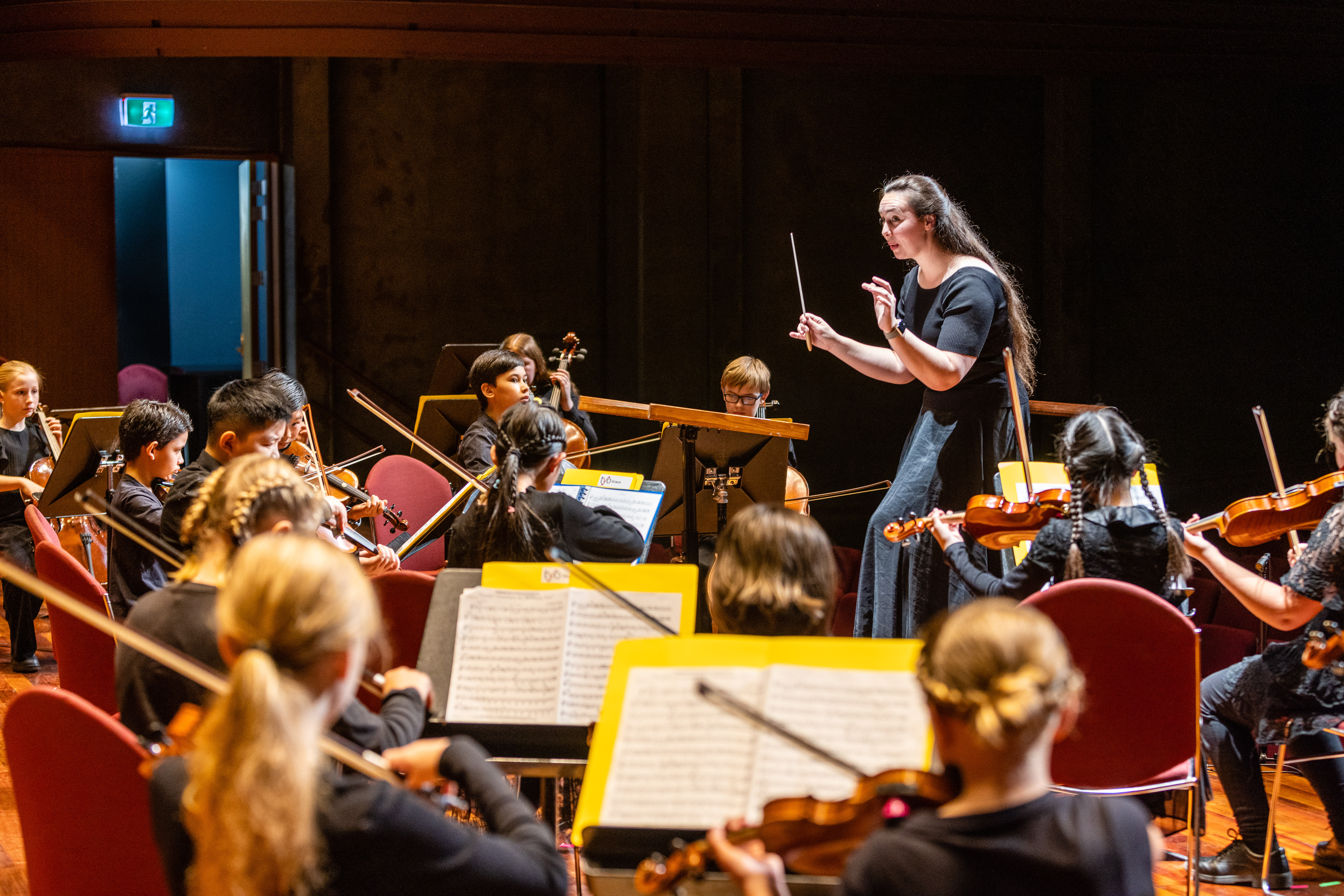Understanding how to create a learning environment that intentionally enhances the value members feel, which builds that resilience, has been the focus of University of Tasmania researchers working with Tasmanian Youth Orchestras (TYO), who believe they’ve hit the right note with The Music and Resilience Project.
Thanks to grants from the Tasmanian Community Fund, the Tasmanian Department of Education, and the Australian Strings Association, the research team has been talking to managers, conductors, tutors, and players about their experiences of belonging to TYO.
Chief Investigator and University of Tasmania senior lecturer Dr Bill Baker and colleagues Associate Professor Anne-Marie Forbes, Associate Professor Mary Ann Hunter, and Dr Kim McLeod have developed a free, research-led, publicly available web resource that intentionally encourages resilience in youth music organisations.
‘Resilience’ is a much-used word these days, says Dr Baker, but the project’s approach focuses on how the everyday TYO environment, stakeholders, and their relationships all contribute to organisation-wide resilience – “everyone from the Chair of the Board to the youngest player contributes”.
“Aligning our data to the learning dispositions wheel, our research identified relationships between resilience, and teachable behaviours or dispositions such as teamwork, empathy, influence, focus, curiosity and grit,” he said.
“Our research highlights the many ways that youth music organisations in schools or the community can develop these dispositions through practical, easy-to-use techniques, available at The Music and Resilience Project. The resource is for anyone involved in music groups; it is designed to help anyone who wants to make sure their teaching practices are holistic, nurturing and supportive of all participants.”

Kyna Hart, General Manager of Tasmanian Youth Orchestras, said TYO participates actively in research opportunities as part of the organisation’s deep commitment to sector development.
“At TYO, we believe strongly in the value of an arts ‘ecosystem’, where organisations and people work together to expand the knowledge base needed for a well-informed and sustainable sector,” Ms Hart said.
“We are delighted to have partnered with the UTAS team on the Music and Resilience project and hope the project website will be a valuable resource for arts practitioners in Tasmania and beyond.”
Those sentiments have been echoed by the Department of Education.
“The Department of Education has a long affiliation with the Tasmanian Youth Orchestra and are pleased to support initiatives that encourage access and participation in music for students right across Tasmania,” Jodee Wilson, Deputy Secretary, Support and Development, Tasmanian Department of Education said.
“Developing resources to support teaches to teach music in schools or community settings is key to achieving this.”
The project team is inviting the broader youth arts and education community to explore and use the new resources available through the website and will run a Zoom workshop to provide hands-on guidance through the website on September 7 at 4pm.
Register today for the free webinar event at utas.zoom.us/webinar/register/WN_APSMWaF2TXamW39rwzxtjA


